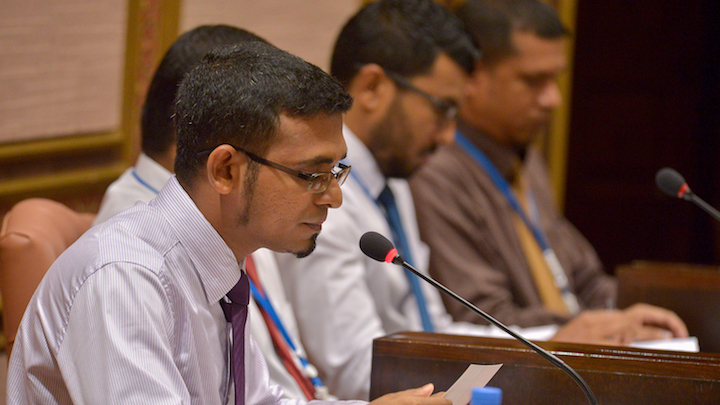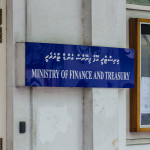The finance ministry has defended plans to sell US$200 million worth of sovereign bonds in the international financial market next year, dismissing criticism from the opposition over growing debt.
Former President Maumoon Abdul Gayoom, who withdrew his support for the government amid a bitter leadership dispute that split the ruling party, called the move “bad economics”.
“It will be a severe burden on the future well-being of Maldives,” he tweeted after the finance ministry invited proposals earlier this month from banks and investment houses for the role of lead managers or bookrunners to issue the US dollar-denominated bonds.
The finance ministry said in a statement Wednesday that the Maldives’ first ever international sovereign bond issuance would help raise finances for infrastructure projects.
It would further pave the way for both private and state-owned companies to raise funds overseas, the ministry insisted.
The Maldives’ entry into the international finance market would also develop the country’s monetary system and capital market, the ministry said, stressing that the bonds will be sold with a fixed coupon rate and a minimum five-year maturity.
The global credit rating agency Moody’s was enlisted earlier this year to assign the Maldives’ first sovereign credit rating in order to prepare for the bond sale, it added.
The Maldives was assigned a local and foreign currency issuer rating of B2, which is considered “speculative and subject to high credit risk.”
According to Moody’s, the rating and outlook reflect healthy growth prospects driven by the tourism sector, low institutional strength, a high debt burden, and “moderate susceptibility to event risks, predominantly driven by domestic politics.”
The government’s debt is “significantly higher than peers” and is projected to rise due to large-scale projects such as the China-Maldives Friendship bridge and airport expansion.
“This anticipated rise in debt, coupled with a sizeable proportion of foreign-currency denominated borrowing that subjects debt servicing to exchange rate movements, act as fiscal constraints,” Moody’s observed.
The International Monetary Fund warned earlier this year that the Maldives is now facing “a high risk of external debt distress” due to large increases in capital spending, which is entirely financed through external loans.
The ambitious projects could be transformative in the long-run, the IMF said, but poses financing risks due to persisting fiscal imbalances.
With increasing expenditure outstripping income in recent years, the government has been plugging revenue shortfalls through the sale of treasury bills and bonds. The bulk of deficit financing was raised from domestic sources such as commercial banks, the pension fund, and private businesses.
Presenting the 2017 budget to parliament last month, Finance Minister Ahmed Munawar noted that public debt is estimated to reach MVR36.9 billion or 64 percent of GDP at the end of 2016.
But Munawar said the government has planned “major changes” to deficit financing next year, such as converting short-term debt to long-term and securing funds for development projects from the international financial market.
“US dollar bonds and such new financial instruments will also be introduced,” Munawar had said.
“The state’s debt will be managed through these reforms and pave the way for reducing the cost of debt servicing.”
Speaking to the Maldives Independent, former Economic Development Minister Mahmoud Razee questioned the benefits of raising finances through the sale of sovereign bonds instead of securing concessional loans.
“Multilateral loans that we get from development agencies are with three to six percent interest rates. But it wouldn’t be the same with selling sovereign bonds,” he said.
While countries like the United States could sell treasury bills and bonds at low interest rates, Razee said the Maldives must offer higher interest rates due to the economic situation and low productivity.
“That means it’s more that’s added to our debt,” he explained.
“For a country that has productivity, it is not a problem. So can we grow our economy? Even if by taking loans, if you can improve the economy, that’s not a problem. It’s basically a short-term loan. Usual loans are for 10 or 15 years. But five years is a short time.
“So the question is, is our economy growing that fast and that much? We would have to pay it back from foreign currency, so can we generate that much? What we see is that governments do not honour their contracts. We had to pay to GMR, and now we have to pay for Nexbis. So can we boost investor confidence?”




















